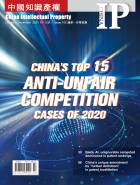
Lower Court Docket No.: 37522, first instance (初), civil case (民), (2018) Beijing Haidian District People's Court (京0108)
Docket No.: 3263, second instance (终), civil case (民), (2019) Beijing Intellectual Property Court (京73)
STATEMENT OF THE CASE AND FACTS
Defendant-Appellant: Hangzhou Longfun Internet Technology Co., Ltd. ("Longfun") and Hangzhou Longene Technology Co., Ltd. ("Longene")
Plaintiff-Appellee: Beijing iQIYI Science & Technology Co., Ltd. ("iQIYI")
iQIYI is the operator of vip.iqiyi.com and the iQIYI App. Users who have paid the appropriate consideration to become iQIYI VIP members are able to enjoy different membership privileges such as skipping ads and watching VIP videos. However, the use rights obtained by a member cannot be transferred, lent, rented, sold or shared to others. iQIYI found that Longfun and Longene had illegally rented out iQIYI VIP accounts based on time slots in the "Play Now" app ("App involved") through technical means, so that their users could obtain iQIYI VIP video services without paying iQIYI. iQIYI believed that the acts involved in this case conducted by Longfun and Longene had, on the one hand, diverted traffic by attracting users to watch videos, causing a decrease in the download of the iQIYI App, and on the other hand, restricted some of the functions of the iQIYI App, leading to a decrease in user experience and damaging the legitimate rights and interests of iQIYI. Therefore, iQIYI appealed to the Beijing Haidian District People's Court, demanding Longfun and Longene to eliminate the impact and jointly and severally compensate the economic losses and reasonable expenses which totaled RMB 3 million.
The court of first instance held that Longfun and Longene had actually provided iQIYI VIP video content by renting out VIP accounts based on time slots, which was a malicious "free-riding" act on the important business resources of iQIYI, and Longfun and Longene had profited from the accused acts. Also, after iQIYI sent notice of the infringement, they had changed their versions and used other forms to make their acts more hidden, implying subjective malice. At the same time, Longfun's and Longene's use of cloud streaming technology to restrict the interface of the iQIYI App in their cloud-based products had misled iQIYI's potential users to misidentification and affected their experience of using the iQIYI App. The acts of Longfun and Longene had constituted unfair competition. In summary, the court ruled in the first instance to support all of iQIYI's claims in accordance with the law.
Longfun and Longene refused to accept the first instance judgment and appealed to Beijing Intellectual Property Court. The court of second instance rejected the appeal and upheld the original judgment.
ANALYSIS
This is a typical case of a new type of Internet-based unfair competition acts arising from ineligible time-slot rental of VIP accounts of a video website.
Nowadays, online video services have become an indispensable type of services in the cultural and entertainment lives of consumers of all ages, and on-demand attention to online videos has been an important source of user traffic for the internet industry. This case has accurately applied Article 12 "Internet-specific article" of the Anti-Unfair Competition Law, and considered the act of unfairly taking video resources of others to gain user traffic under the banner of "sharing economy", as well as the act of using technical means to restrict the function of others' online video services. They were considered malicious "free-riding" acts that were free-riding the business model of another and lacked value increment and were able to operate normally by obstructing and disrupting the internet services legally provided by others.
Through the effective regulation of new types of unfair competition acts under the context of internet competition environment, this case encourages operators to operate in good faith, maintain the normal competition order in the internet market, promote the healthy, orderly and standardized development of the internet video industry, which provides important regulatory guidelines for the rapidly developing internet industry in China. The judgment in this case also provides useful references for similar cases regarding the evaluation and judgment criteria for the acts of internet operators. This case was selected as one of the "2020 Top Ten Cases of Judicial Protection of Intellectual Property Rights of Beijing Courts".
|
Copyright © 2003-2018 China Intellectual Property Magazine,All rights Reserved . www.chinaipmagazine.com 京ICP备09051062号 |
|
|



